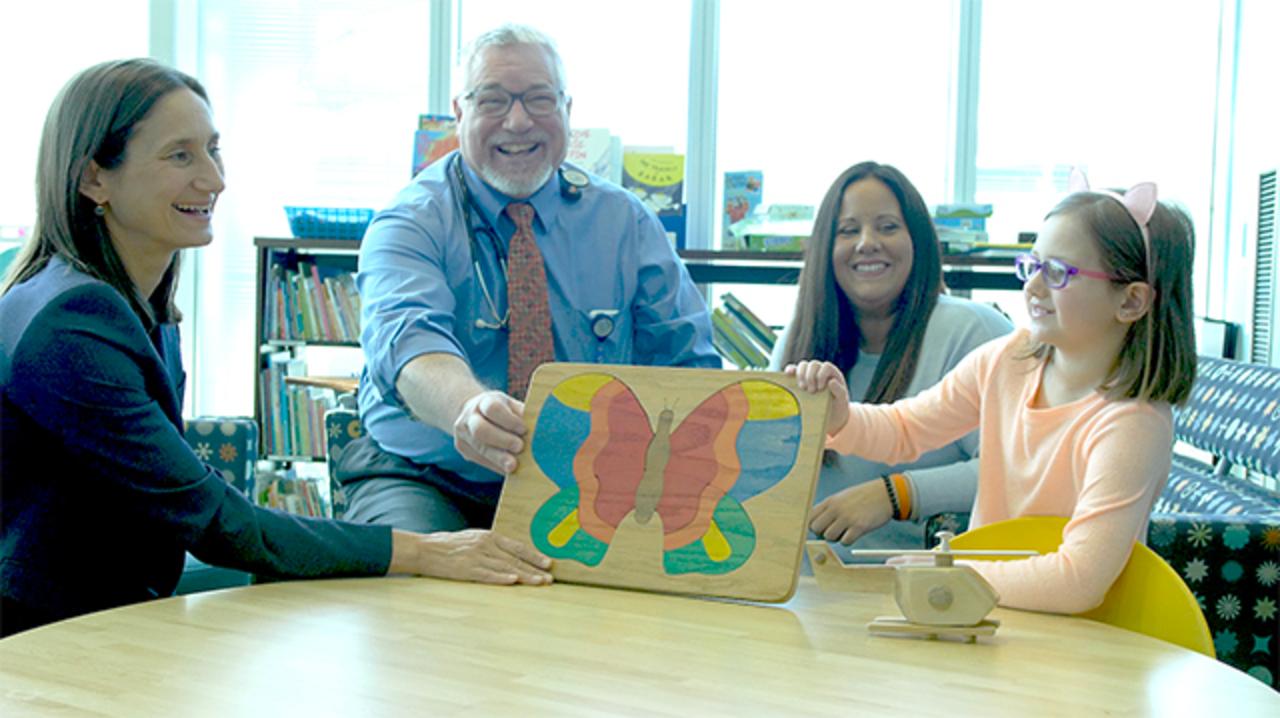Search Thermo Fisher Scientific
Advancing Precision Medicine and Pediatric Therapy Selection: The Role of NGS

Pediatric cancers are challenging because their origins differ from adult cancers, and because historically many of the tools used to study adult cancers have not been adapted for pediatric studies.
That is changing.
Pediatric oncologists are not only working with next-generation sequencing (NGS) data, they are seeking it out to help drive the future of pediatric cancer care.
Dr. Giselle Sholler of the Pediatric Hematology-Oncology department at Helen DeVos Children’s Hospital in Grand Rapids, MI, used NGS data from a clinical trial to help inform therapy selection for a child with choroid plexus carcinoma, a rare and aggressive pediatric brain cancer.
Left to right: Drs. Giselle Sholler and Albert Cornelius of Helen DeVos Children’s Hospital with Tracy and Maddie Pagel. Sholler and Cornelius were part of the care team that used NGS data to inform therapy selection for treatment of Maddie's brain cancer.
At 4-months old, Madison Pagel was diagnosed with choroid plexus carcinoma (CPC), a rare and aggressive pediatric brain cancer that had spread down her spine and into her spinal fluid.
She had surgery to remove the primary tumor, followed by 12 rounds of chemotherapy, which put the cancer into remission. But nine months later, the tumors had returned and spread.
This time her cancer, which currently has a poor prognosis and no established cure in cases of relapse, was resistant to three different chemotherapy protocols.
Doctors at Spectrum Health’s Helen DeVos Children’s Hospital in Grand Rapids, Michigan, told Maddie’s mother, Tracy, to put her in hospice care…
Download the published research
Learn more about the clinical trial that helped inform therapy selection for Maddie Pagel in “Molecular Guided Therapy Provides Sustained Clinical Response in Refractory Choroid Plexus Carcinoma”
Oncomine Childhood Cancer Research Assay
The Ion Torrent Oncomine Childhood Cancer Research Assay is a unique, NGS-based tool designed for comprehensive genomic profiling of cancers affecting children and young adults.


